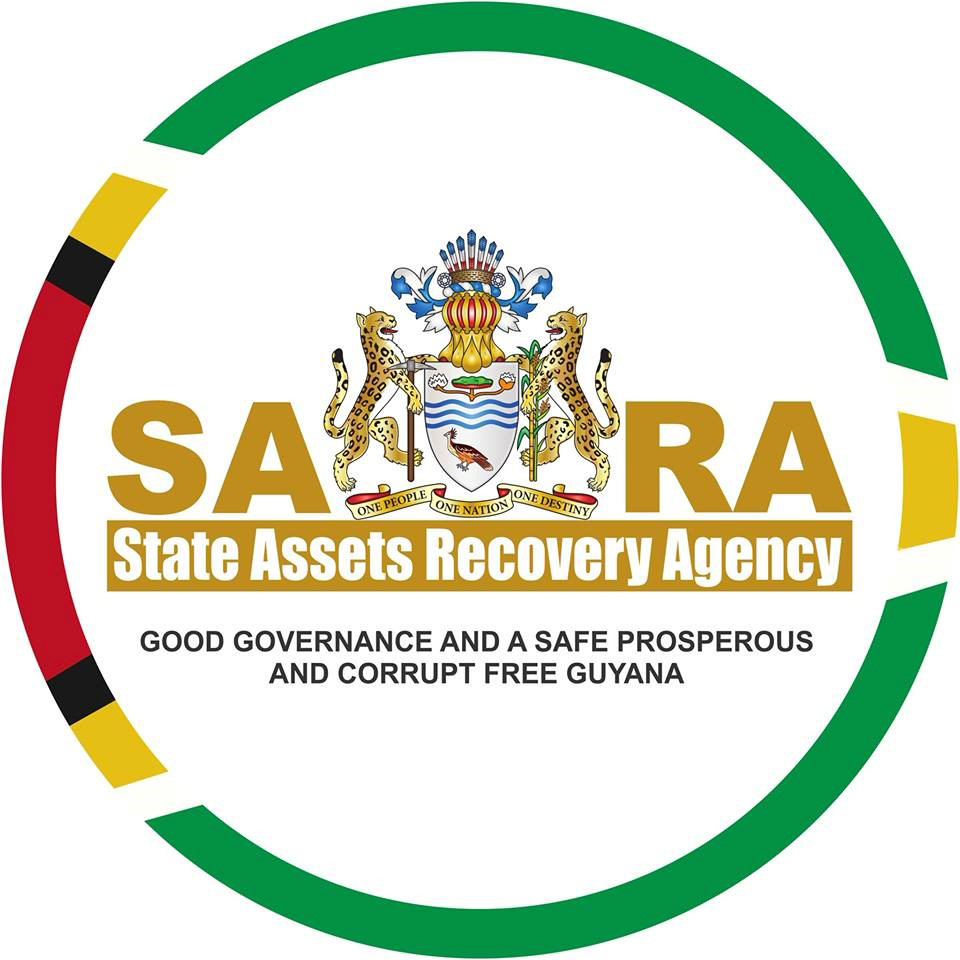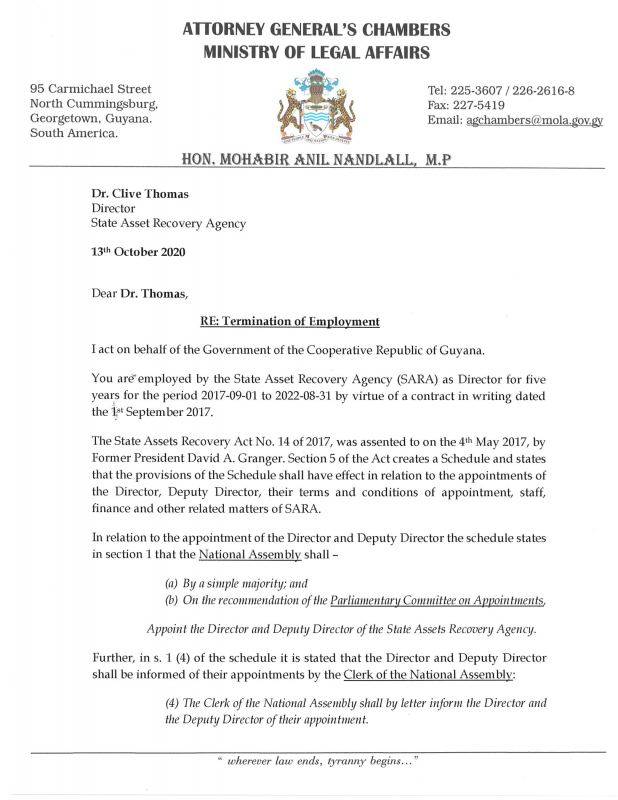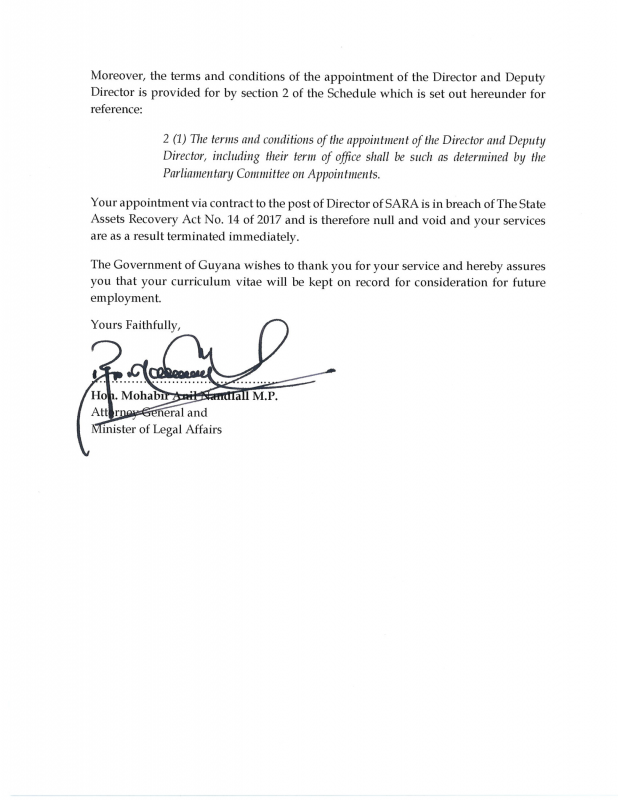Attorney General Anil Nandlall has announced that letters of termination were today sent to staff of the State Assets Recovery Agency (SARA), in keeping with the PPP/C’s administration’s plans to shutter the operations of the agency.
“The PPP/C Administration stated very early on assuming Office that it will close operations of SARA office. Today, letters were dispatched terminating the employment of the staff of this Agency,” Nandlall said in a statement issued this afternoon.
“The Government will undertake to strengthen asset recovery components of the AMLCFT legislation and will endeavour to enact legislation utilizing the CARICOM model of State Asset Recovery, in respect of state assets acquired illegally,” he added, while pointing out that the model legislation is in consonance with Guyana’s laws and the constitution.
Nandlall’s ministry also released the termination letters he sent to both SARA Director Clive Thomas and Deputy Director Aubrey Heath-Retemyer, who were both also informed that their appointments were in breach of the law and therefore null and void.
In his statement, Nandlall said that while the SARA Act specifically provides for the manner in which the Director and the Deputy Director would be appointed, neither of their appointments conformed to the legislation.
“Messrs. Thomas and Retemyer appointed themselves and determined their term of office, in complete disregard and violation of the aforementioned provisions,” he said, while also noting that an action was filed in the High Court challenging their appointment and that action is also pending.
He also referenced a decision of the High Court on proceedings brought by SARA against the Guyana Bank for Trade and Industry (GBTI) over its acquisition of land at High and Young Street, Kingston, where its headquarters are based.
“The Honourable Mr. Justice Franklyn Holder ruled that SARA is not a corporate entity and as such it cannot sue or be sued by such a name. The judge found that since the commencement of the Act, no director has ever been appointed and none by construction of the provisions of the Act,” he said, while adding that the Court ruled that only a director a duly authorized officer was empowered by Section 40 of the Act to institute proceedings of the nature sought to acquire the land from GBTI. “Although, the court raised the issue of an authorized officer as described in Section 2 of the Act having the capacity to institute proceedings such as the one against GBTI, counsel for SARA did not seek an Order to substitute a possible authorized officer with the description of Section 2 of the Act. The case was struck out.”
Against this background, Nandlall said every other action filed by SARA is bound to fail due to the defect identified by the Court. “In the meanwhile, this Agency has achieved nothing in five years, but has gobbled up close to $1B GYD in public funds in salaries, wages, rent and operational expenses,” he said.
Nandlall also noted that within days of its assent, a comprehensive constitutional challenge was mounted against the State Assets Recovery Act by activist Ramon Gaskin. “The challenge impugned approximately 90 of the 107 Sections of the Act, as being unconstitutional and in flagrant violation of the separation of powers,” he said, while noting that the matter is pending before the Chief Justice, awaiting decision.
He recalled that the legislation to enable the agency had received widespread criticism from the PPP/C while in opposition, as well as many civil society organisations, such as the Guyana Bar Association, the Private Sector Commission and the labour movement. “The contentions were that the Bill was too oppressive, Sections had unlawful retroactive effect and that many of the provisions collided with the Constitution, including those Articles that protected the fundamental rights of citizens in relation to property and protection of the law,” he further noted, before pointing out that although the former Attorney General Basil Williams held a few public consultations, they turned out to be “placatory and futile” as none of the over 100 recommended amendments were incorporated into the Bill.











